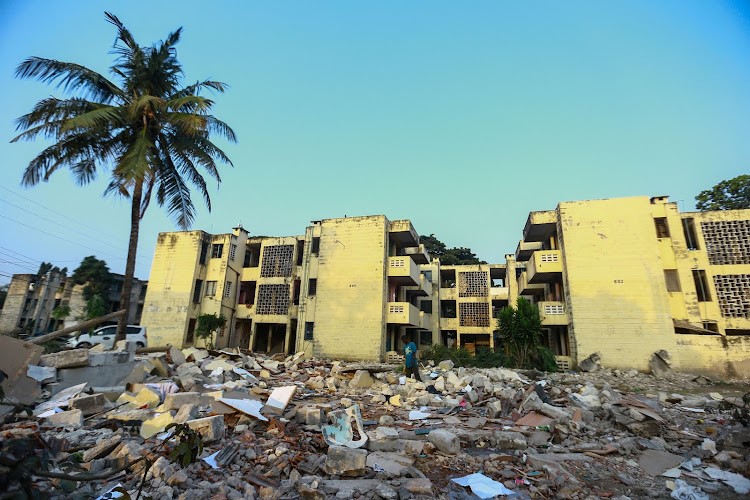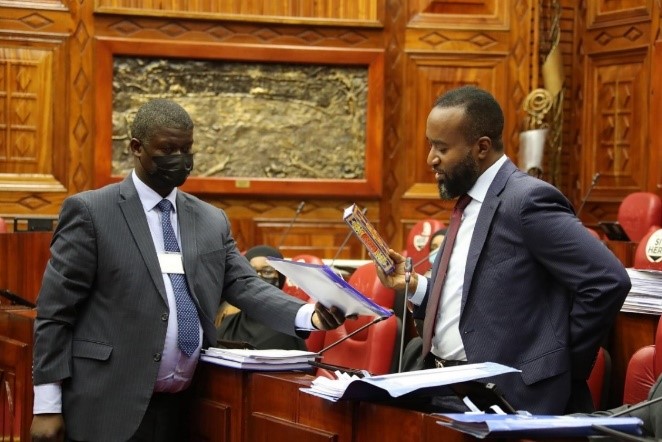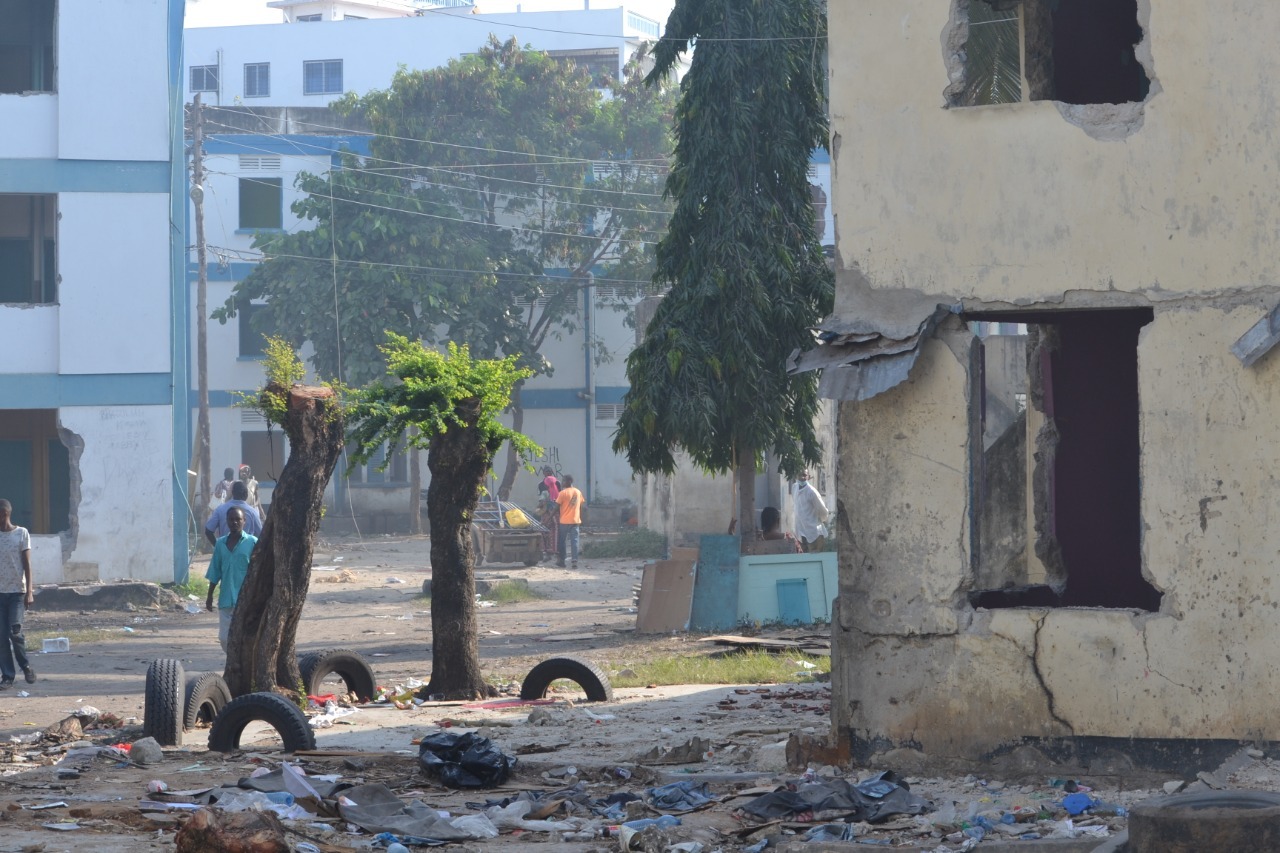Author: Munira Ali Omar-Program Officer, Land & Urban Development
In 2016, the County Government of Mombasa, through a public-private partnership project dubbed “Urban Renewal and Redevelopment of Old Estates”, sought to demolish old estates of Mombasa in order to build 30,000 apartments as part of its contribution to the Big Four Agenda. 90% of the units would go to the investor and the county would remain with 10% that could be occupied by the tenants of old estates.

The project was allegedly meant to meet the housing needs of low-income households by offering decent, affordable and new houses to the people of Mombasa. How exactly the project was going to benefit former tenants and the urban poor living in informal settlements remained unclear and a concern to many. It was for this reason that Haki Yetu Organization together with Kituo Cha Sheria and Transparency International, went to court in 2016 to challenge the legality of the project while former Buxton tenants filed a constitutional petition against the County Government to stop its implementation.

Due to the lengthy court process and fearing evictions, the tenants, through the support of Haki Yetu Organisation and members of Coast Land Non-State Actors (CLNSA) presented a petition to the Mombasa County Assembly in August 2020 for their intervention. To their disappointment, the members of the County Assembly never responded to the petition as was required of them. This saw Buxton tenants move the Parliament in March 2021 to have their concerns addressed. However, before the Senate Committee on Roads and Transportation was tasked to investigate the Buxton housing project and after a long court battle, eviction orders were granted. This led to the county government and developer eviction of over five hundred Buxton tenants.
Interviews with former Buxton tenants revealed that forced evictions under the Mombasa urban renewal project caused homelessness which had a negative impact on their mental health. Sadly, evictions in informal settlements support the belief in the misguided opinion that poor people are an obstacle to be overcome as they are seen to be anti-development. In his book “Undaunted: Stories of Freedom in a Shackled Society” Haki Yetu Executive Director Father Gabriel Dolan paints an interesting picture of how the poor are often living in fear of eviction when he says:
“How can a family plan for its future when it’s continuously threatened with eviction? Yet this is a shocking reality of life for millions of people across the globe. Worse still the homeless and the evicted are frequently blamed for their own predicament. Instead of criminalizing poverty, the poor are criminalized, stigmatized and deemed a burden and a threat to the welfare of society. In Kenya as in many other countries, being poor is almost a crime while mega looters are feted and emulated.”
Later he adds:
“The first step to any national healing and reconciliation process is a public acknowledgement of what happened. That has not taken place in Kenya. The Truth, Justice and Reconciliation Commission (TJRC) was an effort at uncovering the nation’s ugly past and putting it on record. But its report has been denied, ignored and demeaned by successive regimes. Is it any wonder then that many cannot forgive when the state won’t acknowledge the crimes committed in its name! How can you forgive when your perpetrator denies their culpability?”
What Fr. Dolan is pointing out is that the government cannot solve the housing crisis without addressing historical land injustices. That it was not until the promulgation of the new Constitution in 2010 and the establishment of the National Land Commission that the hope of addressing these injustices began to appear. However, despite its creation, the recommendations made in the TJRC and the Ndung’u Reports have never been implemented:
One of the most persuasive explanations for this has been that the post-2010 administration and its predecessors have shown no political will to implement the anticipated land reforms. This is attributed to the fact that government officials, including members of parliament, are caught up in irregular and illegal land acquisition cases. Many of them will therefore endeavour to ensure land reforms are not actualised.
Upgrading old estates through illegal privatization of public land by the county government will benefit middle- and upper-income groups. What it will not do is improve the lives and livelihoods of people living in slums and informal settlements who by virtue of their low-income status are neither able to pay for the units nor access mortgages. A better way to achieve the latter is to resolve historical land injustices while upgrading slum areas and informal settlements. For this to happen, Mombasa needs accountable politicians who are willing to implement the housing pillar under the Big Four Agenda to give decent homes to the marginalised. After all, it is impossible to address housing poverty without focusing on informal settlements as they are often where the majority of poor live.
So why bring all of this up now? Keen observers of the current electioneering period would notice that over the preceding days and months, we have been treated to a sight of campaign messages and slogans awash with all manner of captivating imagery and theatrical events aimed at mass appeal. We have seen candidates portray regime change, reforms and patriotism. A lot is happening in the political arena, but one mantra remains constant in coastal post-independence politics; ‘elect me I will bring land reforms, elect me I will bring you title deeds, elect me I will solve historical land injustices.’ The same false election campaign promises after every five years. Using the land question only for their selfish interests, to retain power! Remember, the current political status and leaders that you will elect reflects on how the Mombasa housing project will be implemented by the next administration.
We have a few days until Kenyans will be called upon to perform a ceremonious exercise to change leadership. On the 9th of August 2022, we have the opportunity to do what is right. Mine is to beseech you to vote against any deceit. Vote against economic sabotages. Vote against tenderpreneurship. Vote for integrity. Simply put: KATAA WAFISADI!


Write a Comment